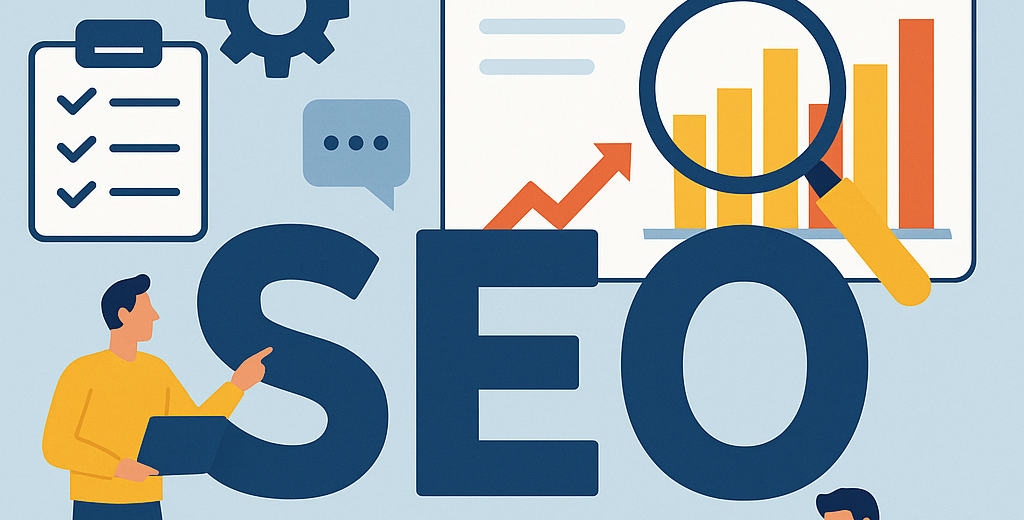In a world where nearly everyone turns to Google before making important decisions, your therapy practice’s online visibility matters more than ever. Whether you’re in private practice, run a group clinic, or offer specialized modalities, one thing is clear: people are searching for mental health support online—and if they can’t find you, they’ll find someone else.
That’s where Therapist SEO comes in. Therapist SEO is the art and science of making sure your website ranks on search engines when people look for services like yours. But unlike traditional marketing, SEO is subtle, sustainable, and built on trust. It helps you connect with the right clients in your area—without being pushy or promotional.
Why SEO Is So Crucial for Therapists Today
The way people find a therapist has changed. Instead of relying on referrals or word-of-mouth alone, more individuals are searching online for mental health support. They’re Googling things like “trauma therapist near me,” “anxiety counselling in Ottawa,” or “EMDR therapist online.”
These are high-intent searches—meaning people are looking to take action. And if your practice doesn’t appear on the first page of Google, you’re likely being overlooked by people who need what you offer.
What Makes Therapist SEO Unique?
Therapist SEO isn’t like optimizing a blog or a product page. It requires a specific tone, careful messaging, and a deep understanding of both search behavior and emotional needs. Your website should do more than rank—it should feel safe, grounded, and aligned with your values as a practitioner.
Trust Before Traffic
While high rankings are a goal, true SEO success in the therapy space comes from building trust before someone ever clicks “Book Now.” Your content should reflect your voice, your expertise, and your approach to care.
Human-First Language
Many SEO writers focus only on keywords. At Designful, we write for both search engines and humans. We prioritize clarity, accessibility, and compassionate tone—because that’s what clients resonate with most.
Key Pillars of a Strong Therapist SEO Strategy
1. Local SEO for Mental Health Providers
Your ideal clients are often searching with local intent—things like “child therapist in Toronto” or “grief counselling near me.” To show up in these searches, your website needs to be optimized for your city, neighborhood, or region.
This includes creating location-specific pages, embedding Google Maps, and fully optimizing your Google Business Profile. When done right, local SEO can help you dominate map results and appear in the “local 3-pack” on Google.
2. Service Page Depth and Clarity
If all your services are lumped onto a single “Counselling” page, Google won’t know how to index them individually. Instead, create separate pages for each modality or offering—CBT, EMDR, couples therapy, trauma support, ADHD coaching, and so on.
This allows you to target specific keywords, address client pain points, and improve your chances of ranking for those unique services.
3. Blog Content That Meets Search Intent
Blogging is one of the most powerful tools in Therapist SEO. By writing content that answers common questions (“How do I know if I need therapy?” or “What’s the difference between CBT and DBT?”), you position yourself as an authority while attracting search traffic organically.
4. Site Structure and User Experience
Google favors fast, well-structured websites. Your site should load quickly, be easy to navigate, and look just as good on a smartphone as it does on a desktop. Simple, intuitive layouts guide visitors smoothly toward booking a call or filling out your contact form.
5. Ethical Conversion Strategy
We understand that therapy isn’t a hard-sell service. Your calls-to-action should be gentle, supportive, and inviting. Instead of “Buy Now,” think “Let’s Talk” or “Book a Free Discovery Call.” We help therapists create SEO-optimized pages that gently encourage conversion while respecting boundaries.
How Long Does Therapist SEO Take to Work?
SEO is a long game—but the rewards are lasting. Typically, therapists begin to see results within 2–3 months, with stronger traffic and visibility after 6–12 months of consistent effort. Unlike ads, SEO continues to perform even when your campaign ends.
It’s digital visibility that compounds—and it works even while you’re in session or offline.
Benefits of Investing in SEO as a Therapist
When done right, SEO offers more than traffic. It offers alignment and autonomy. Here’s what you gain:
- A full practice of ideal-fit clients
- Reduced reliance on psychology directories
- Organic traffic without ongoing ad spend
- Improved visibility for niche services
- Greater flexibility and long-term stability
Your work is important. SEO doesn’t change that—it amplifies it. Therapist SEO is not about hacks or algorithms. It’s about gently helping the people who need you the most, find you with ease and trust.
In a time where so many are searching for mental health support, your ability to be found matters. SEO bridges the gap between your service and their search—with empathy, clarity, and consistency.






